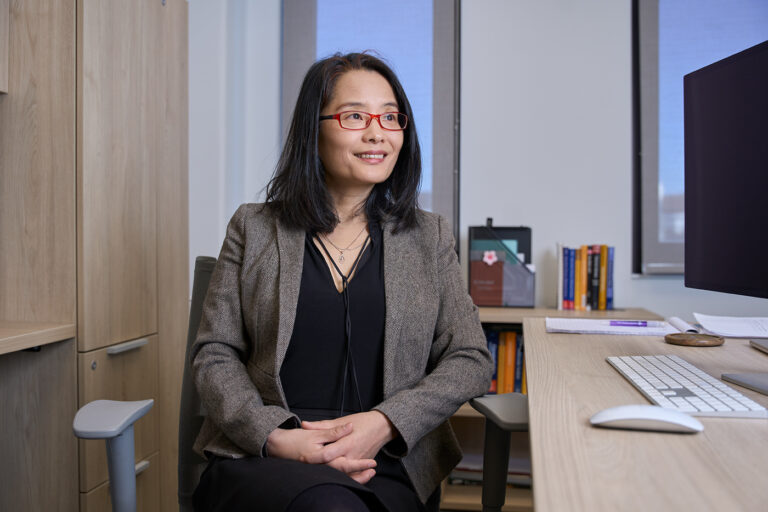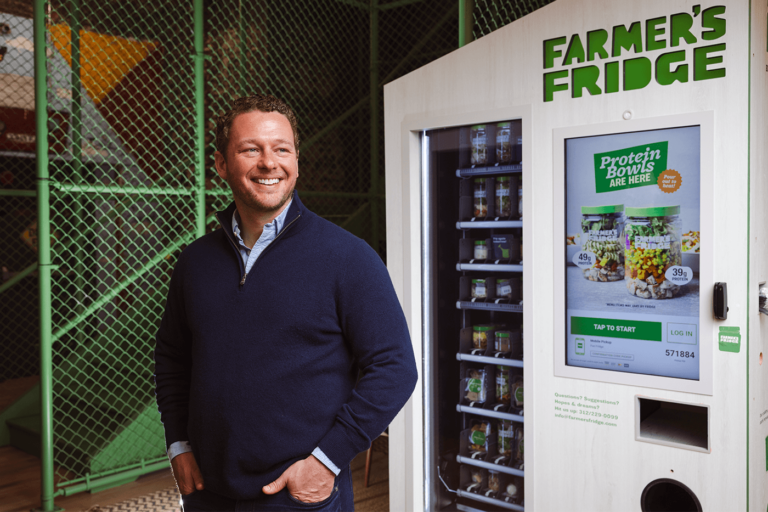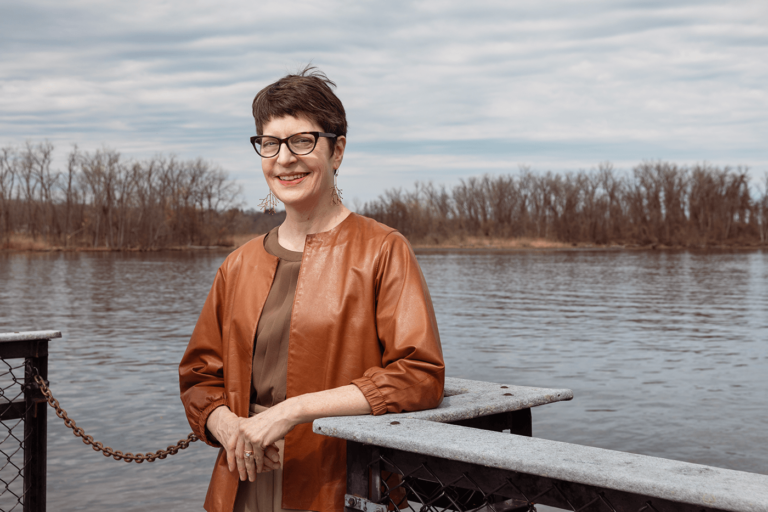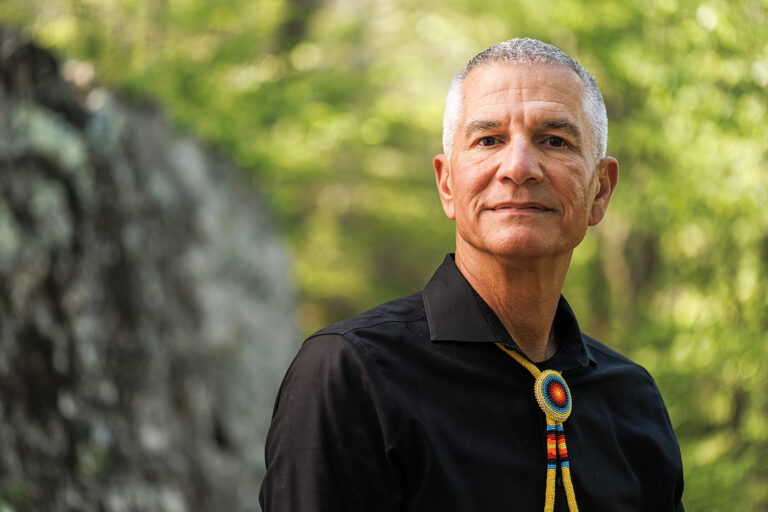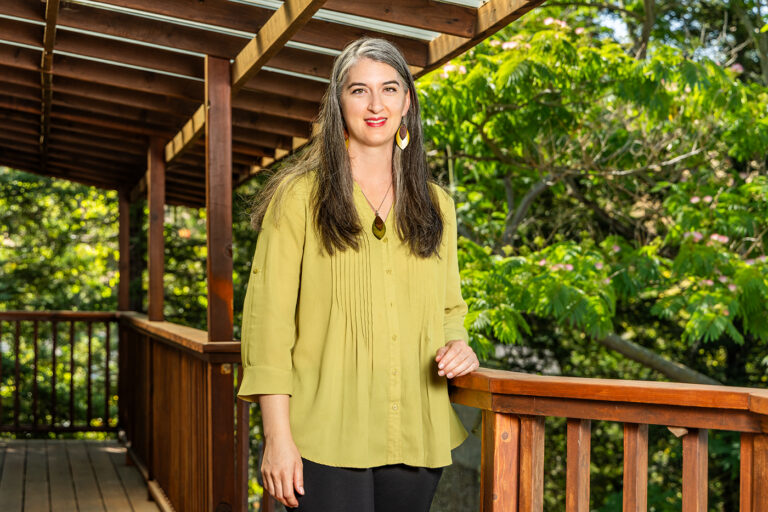Building healthier communities
Doneisha Bohannon, MPH ’14
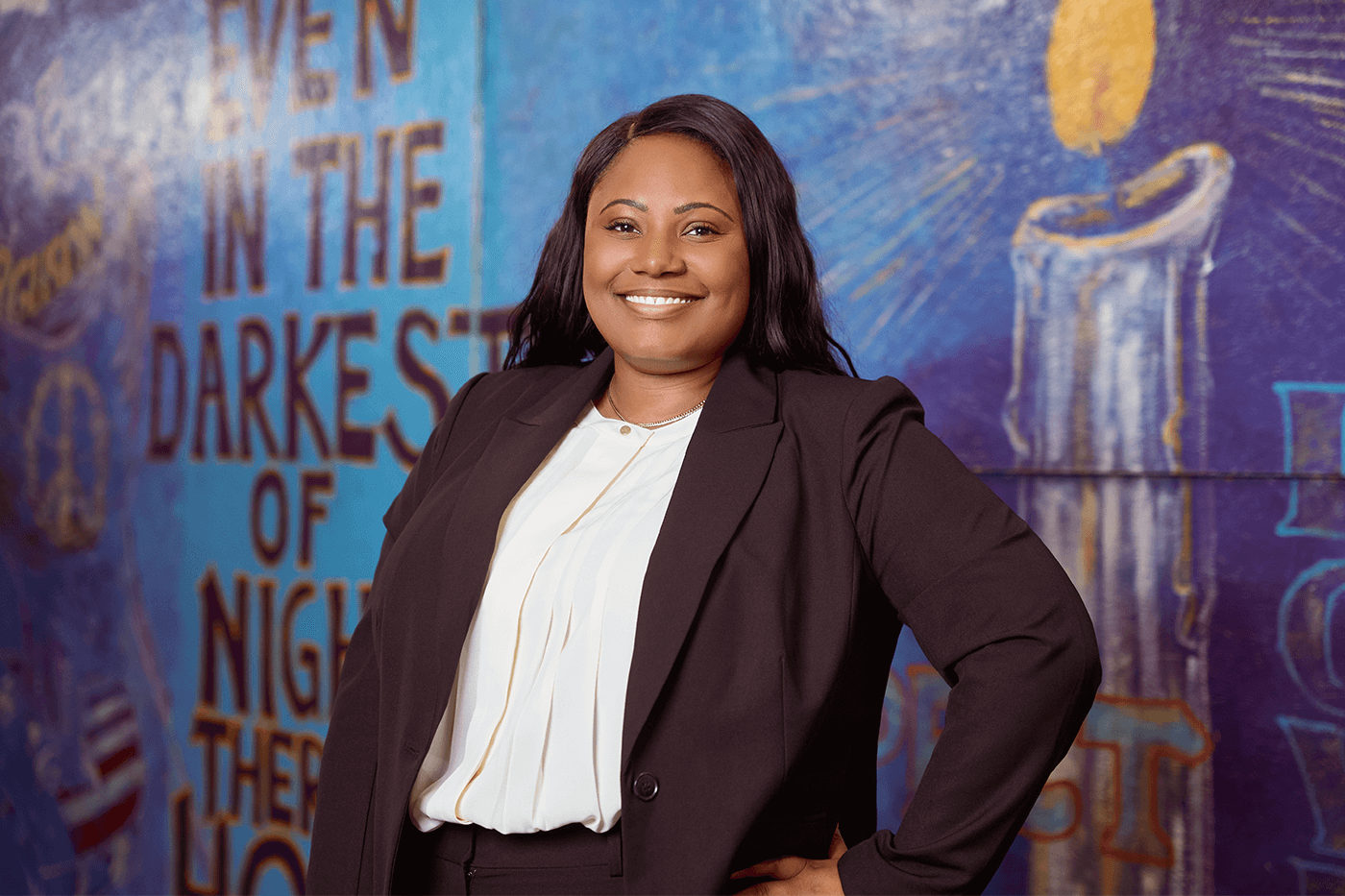
By Matt Hampton
Doneisha Bohannon’s work is driven by her belief that ZIP codes shouldn’t determine health outcomes.
Growing up in the City of St. Louis, Doneisha Bohannon, MPH ’14, witnessed how neighborhoods shape health and opportunity. This upbringing, combined with her undergraduate studies in geography and sociology, motivated her to address disparities in her community.
Today, as the director of community health initiatives in BJC HealthCare’s Office of Community Health Improvement, Bohannon leads teams that work across 14 hospitals in Missouri and Illinois. Her work focuses on building authentic partnerships with community organizations to address differences in health outcomes and prevent chronic conditions such as diabetes and heart disease.
“My vision for the future is that your ZIP code will not be a strong predictor for your health outcomes — a future where a baby born in any neighborhood has a fair opportunity to be well.”
Doneisha Bohannon
Before joining BJC, Bohannon was a research staff member at the Brown School at WashU’s Center for Tobacco Policy Research (now the Center for Public Health Systems Science) and worked at Missouri Foundation for Health and Centene Corporation. During COVID-19, she served on the Regional Response Team, working to ensure equitable distribution of resources and improve collaboration across the greater St. Louis region.
Bohannon maintains close ties with WashU, was honored with the Brown School’s Emerging Leader Award in 2022, and previously served on the Brown School Alumni Board (2014-2017).

What is your vision of a flourishing community?
My vision for the future is that your ZIP code will not be a strong predictor for your health outcomes — a future where a baby born in any neighborhood has a fair opportunity to be well; where all communities have safe parks, quality grocery stores, great schools with up-to-date books and technology, safe and stable homes, great transportation networks, access to healthcare, thriving local businesses, and career opportunities with livable wages. I think many share in this vision, and I truly believe that we can work together to bring it to life.
How does your work at BJC help reduce health disparities?
We co-design solutions with the communities most affected by health challenges. This work involves advocacy, data-informed programs, resource connections, working with philanthropic partners, and marketing and communications. Some of our specific initiatives focus on addressing the infant and maternal health crisis by ensuring hospitals support doulas, who play a critical role in improving health outcomes for mothers and families. We also collaborate with regional grocers and community-based organizations to improve access to healthy food. Even though residents may face transportation barriers, we’ve been able to leverage a delivery network to deliver meals. Additionally, we prioritize prevention by providing health screenings, coaching, and education in businesses, libraries, schools, recreation centers, nonprofit organizations, and community centers — trusted sites where people are already going in their communities.
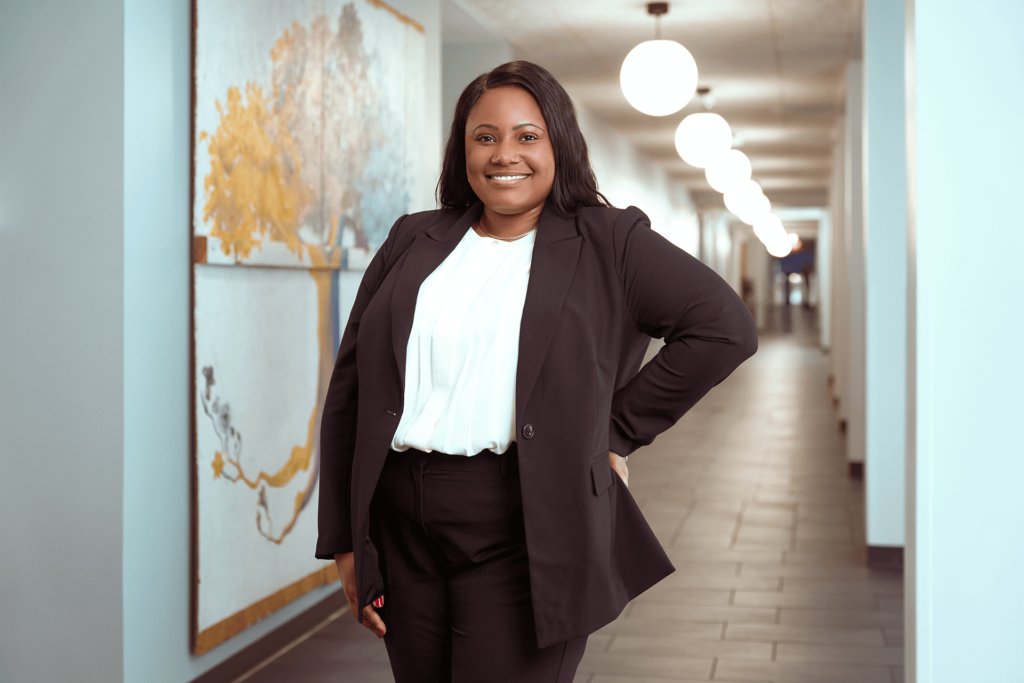
Your prior role at Missouri Foundation for Health related to both metropolitan and rural communities. How do the health challenges those different communities face compare to each other, based on your experience?
People in rural and urban settings face many similar challenges, such as lack of access to healthy food, transportation barriers, limited to no access to safe and affordable housing, and lack of access to healthcare. A particularly rewarding part of my role involved creating conversations between folks from different parts of our state about ways we can collaborate for change. We are more alike than different across this state, and there’s beauty in knowing that. There are opportunities to come together and advocate for change, because we are experiencing many of the same challenges.

How did your time at WashU influence your current work?
Fostering dialogue was a skill I learned at the Brown School, and it’s been important in my career when working with folks from different groups and backgrounds to have rich conversations and co-design solutions that have a positive impact. WashU also centered collaboration and shared decision-making. Regardless of accolades and roles, everyone came to the table to leverage their unique skills and have meaningful conversations. This has been a key skill in my work in community engagement: At the end of the day, we’re people working to solve a challenge together, and there’s power in leaning into rich and diverse perspectives, regardless of titles. Another valuable aspect of my time at WashU was the connections I made with my graduate school friends. Years later, I always have someone I can call on and discuss ideas with. This group of friends is important in my life because we can dream together and activate the tools WashU gave us to create change.
At the intersection of data, climate, and human health
In 2024, Bo Li joined Arts & Sciences as the Stanley A. Sawyer Professor in Statistics and Data Science. Her professorship — coming soon after the department’s formation — signals WashU’s deepening commitment to high-impact, transdisciplinary scholarship.
Revolutionizing nutrition: The startup transforming vending machines with healthy choices
Back in 2013, Luke Saunders, AB ’10, founded Farmer’s Fridge, a start-up with a mission to make healthy food more accessible. Today, that company operates in more than 2,000 locations and has served 13+ million meals from its vending machines nationwide.
Powered by design, anchored in community
Having grown up in Atlanta, Angelyn Chandler, AB ’89, made it her goal to settle in a highly walkable city with robust public transportation. Upon finishing her graduate degree from Princeton University, she landed in New York
From Buder scholarship to community champion
Kerry Bird, MSW ’98, applied for a scholarship to study at the Brown School almost by chance — and last minute. Inspired by the possibility of making a meaningful impact in his community, he rushed out of the meeting, found a pay phone, and called the recruiter. A month later, he was enrolled at Brown on a Buder Scholarship. That call set him on a leadership path. Today, he serves as the director of the North Carolina American Indian Heritage Commission.
Grounded in global community
Claudia Romeu, AB ’08, grew up in Puerto Rico, where she was raised with strong values, including a deep sense of social responsibility toward others. At the same time, her upbringing was shaped by a relative lack of cultural diversity. Studying social anthropology at WashU helped open her eyes to other ways of living and the breadth of human experience.
